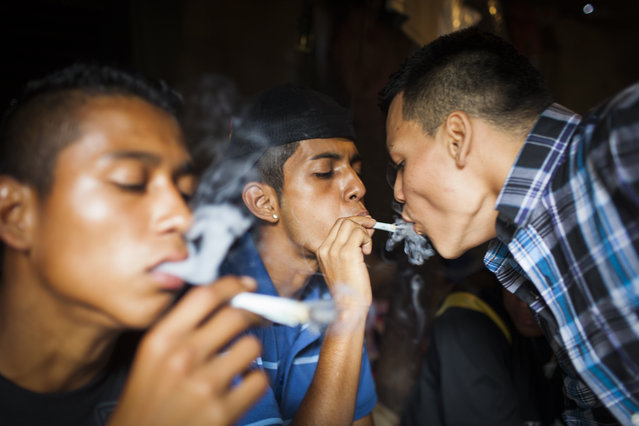
Mara Salvatrucha (MS) gang members smoke marijuana in the Las Victorias district of San Salvador. In March 2012, the two largest gangs in El Salvador – the Mara Salvatrucha (MS) and the Barrio 18 (M18) – agreed on a truce following secret negotiations between gang leaders in prison which were mediated by a bishop and a former rebel leader. It is unclear whether the decision was the idea of the gangs themselves or whether they were encouraged by the government. The murder and kidnapping rate has fallen significantly since the beginning of the truce but it remains unclear how long the truce will hold. (Photo by Adam Hinton)
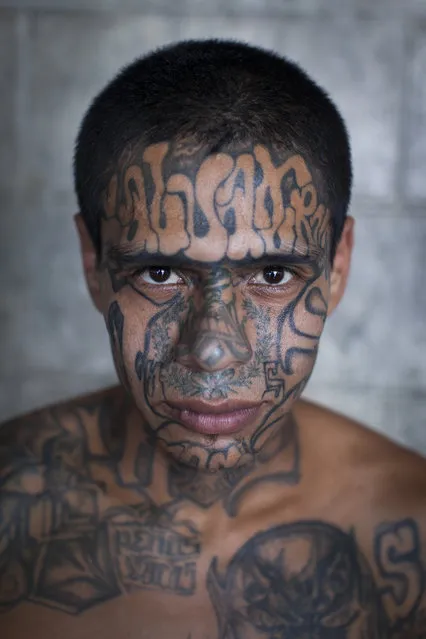
A tattooed inmate at the Centro Preventivo y de Cumplimiento de Penas Ciudad Barrios. The prison is reserved for members of the Mara Salvatrucha (MS) gang. The prison has no guards and is run by the members of the gang. Since opening in 1999, the prison has filled up with gang members and now holds twice as many inmates as it was initially intended for. Conditions are extremely overcrowded and unsanitary and violence is common. (Photo by Adam Hinton)
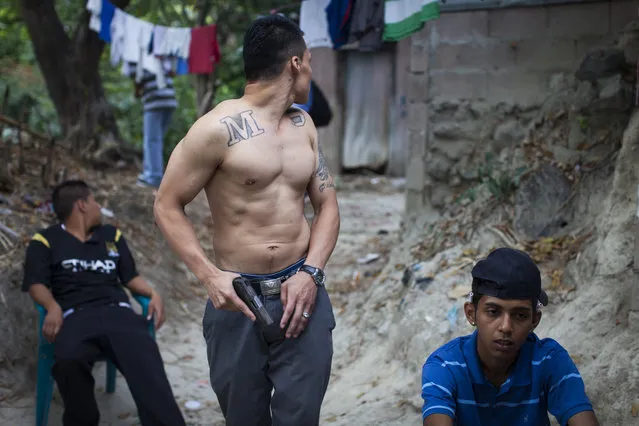
Mara Salvatrucha (MS) gang members show off their weapons in the Las Victorias district of San Salvador. (Photo by Adam Hinton)
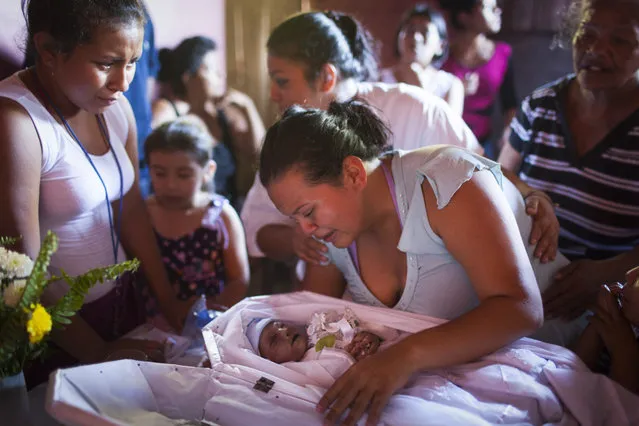
Valeria Michel Hercules lifts up her dead baby, Gabriel Alexander, at a funeral held in the Las Victorias district of San Salvador. It is unclear how he died. His mother, Valeria Michel Hercules, was in prison when she went into labour. The guards allegedly delayed her transfer to hospital despite her appeals. When she finally arrived, the infant was dead and she had to deliver a still born child the next day. (Photo by Adam Hinton)
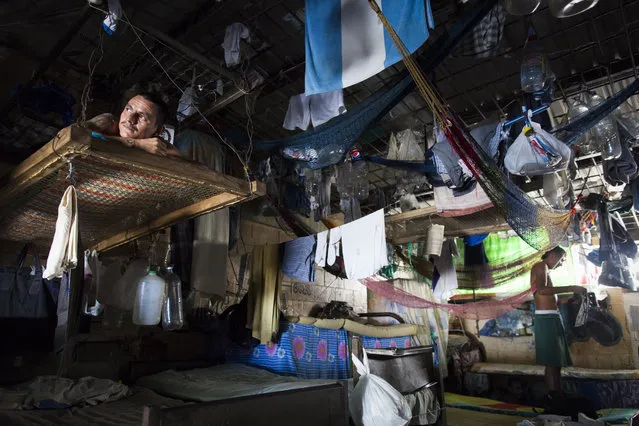
A communal cell at the Centro Preventivo y de Cumplimiento de Penas Ciudad Barrios. The prison is reserved for members of the Mara Salvatrucha (MS) gang. The prison has no guards and is run by the members of the gang. Since opening in 1999, the prison has filled up with gang members and now holds twice as many inmates as it was initially intended for. Conditions are extremely overcrowded and unsanitary and violence is common. 70 inmates live in cells designed for 20 with beds hanging from the ceiling because there's no more floor space. (Photo by Adam Hinton)

Mara Salvatrucha (MS) gang members with their weapons in Las Victorias district of San Salvador. (Photo by Adam Hinton)
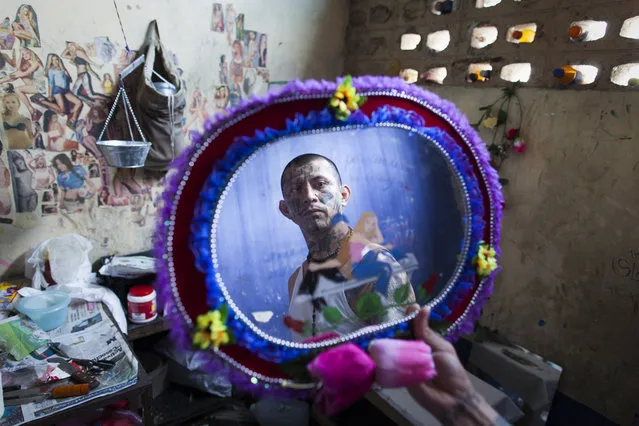
Carlos Tiberio Valladares, one of the leaders of the Mara Salvatrucha (MS) gang at the Centro Preventivo y de Cumplimiento de Penas Ciudad Barrios. The prison is reserved for members of the Mara Salvatrucha (MS) gang. The prison has no guards and is run by the members of the gang. Since opening in 1999, the prison has filled up with gang members and now holds twice as many inmates as it was initially intended for. Conditions are extremely overcrowded and unsanitary and violence is common. (Photo by Adam Hinton)
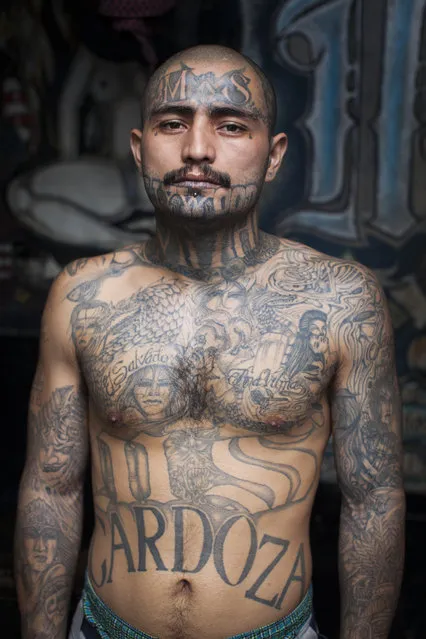
A tattooed inmate at the Centro Preventivo y de Cumplimiento de Penas Ciudad Barrios. The prison is reserved for members of the Mara Salvatrucha (MS) gang. The prison has no guards and is run by the members of the gang. Since opening in 1999, the prison has filled up with gang members and now holds twice as many inmates as it was initially intended for. Conditions are extremely overcrowded and unsanitary and violence is common. (Photo by Adam Hinton)
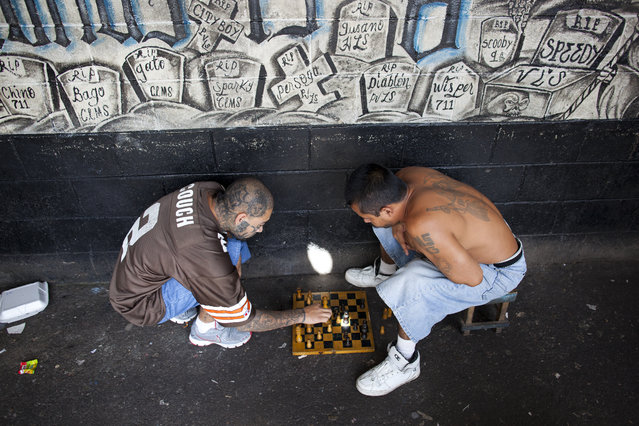
Inmates play chess at the Centro Preventivo y de Cumplimiento de Penas Ciudad Barrios. The prison is reserved for members of the Mara Salvatrucha (MS) gang. (Photo by Adam Hinton)
23 Oct 2013 11:59:00,
post received
0 comments
